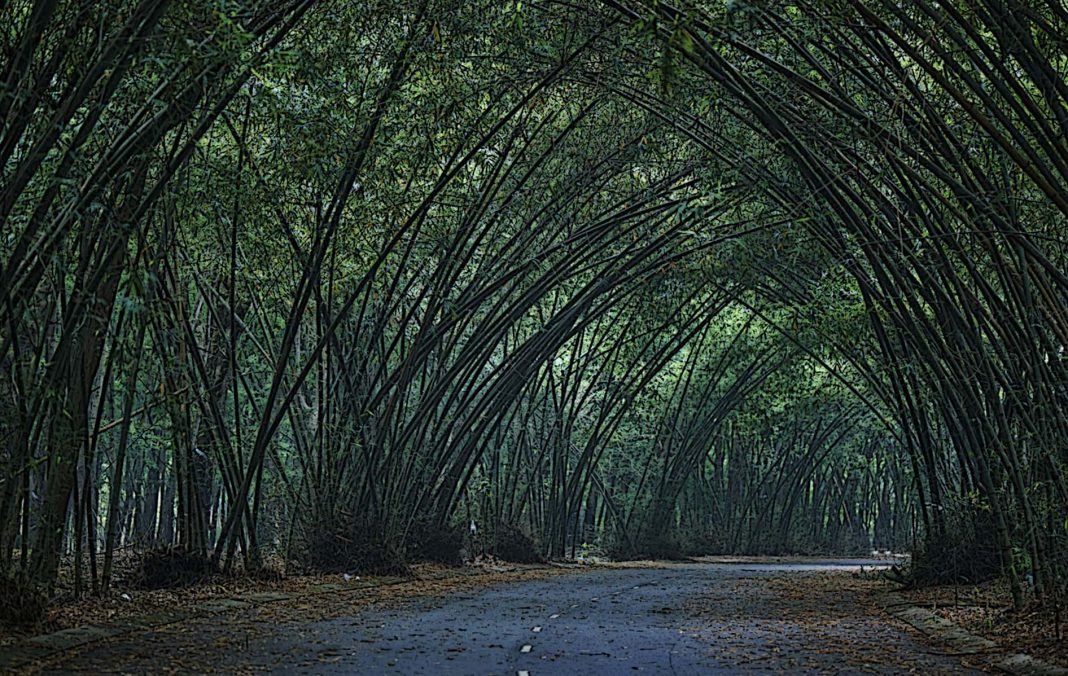Sitting alone, somewhere in a bamboo grove
Plucking on a zither, whistling along
Deep in the forest, where I can’t be found
At least, not until the bright moon shines
known only to me and the bright moon, 明月, míng yuè,
Wang Wei, 王維, 699–759
I Want to be Alone
We’re social critters who need to be strongly connected with other people. But, as every poet knows, solitude can be just as important. Space, we need space, and social distancing, but more than that sometimes we want to be alone, as Greta Garbo famously said.
Alone, Li Bai sat and watched Mt. Jiangshan. Alone, Du Fu sat in a grassy grove on a warm summer’s day. Wang Wei wrote at least two poems about being alone, one on an autumn night. And this one in a secluded bamboo grove, plucking a zither, whistling alone except for the moonlight.
Around the year 747, Wang Wei’s mother died. Wang Wei was then 48 years old. As a good son, devout Buddhist, and follower of Taoism, he retired from public life for a period of mourning at his family estate in Lantian County, Shaanxi province. He put the time to good use writing a collection of poems with Pei Di (裴迪) called Wangchuan Ji, or in English, the Wang River Collection or Wheel River Collection.
Chinese and Pinyin
竹裏館
獨坐幽篁裏
彈琴復長嘯
深林人不知
明月來相照
Zhú Lǐ Guǎn
Dú zuò yōu huáng lǐ
Dàn qín fù chángxiào
Shēn lín rén bù zhī
Míng yuè lái xiāng zhào
Today
Is this poem relevant today?
Think of Wang Wei as an ancient Henry David Thoreau walking the woods on Walden Pond. Or Ansel Adams taking pictures in the High Sierras. Songs – those of you looking for a 21st century connection can find many. Perhaps none better than Gilbert O’Sullivan’s Alone Again (1972). Prefer Chinese, try 王嘉爾 Jackson Wang, 一個人 Alone.
It’s a “Zenthing”
The poem is relatively straight forward, but I will give you my thoughts on translation as I differ in the last line with other translators.
From the title, Zhú Lǐ Guǎn, 竹裏館, we learn that Wang Wei has fashioned a secluded shelter in his bamboo grove. Guàn doing double-duty as a homophone for a Taoist place of worship. In line one, we find Wang sitting alone, 獨坐, Dú zuò. Where? Somewhere in a bamboo grove. 篁裏, huáng lǐ. Lǐ acts here as an indistinct unit of measure, somewhere. In line two, we see and hear him plucking a zither, 琴, qín. No confusion there, a zither, the seven string Chinese Guqin. But 長嘯, chángxiào requires some explanation. Chángxiào is a Taoist transcendental whistling, a long-drawn out whistling that functions as a yogic exercise. A skillful whistler could, it is believed, summon animals or communicate with supernatural beings.
Perhaps, in Wang Wei’s case, he is whistling to his departed mother.
The real trickery is in the last line where Wang is hidden from all the world except for the all seeing bright moon. Only if one has walked in a deep dark forest does one know what Wang Wei means.
In other words, its a Zenthing.












